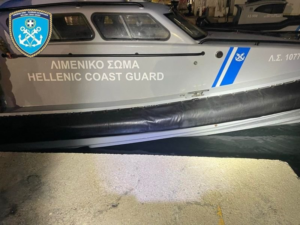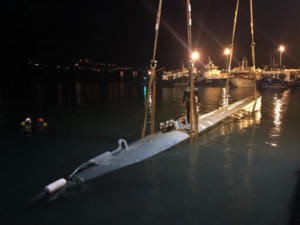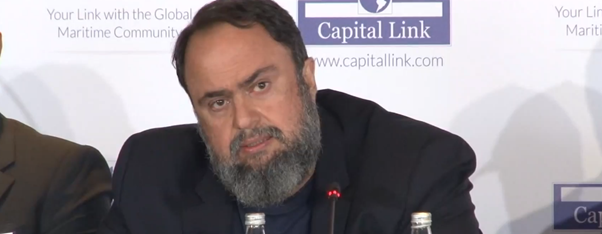
Photo: Evangelos Marinakis, founder and chairman of Capital Maritime & Trading Corp.
Distinguished maritime leaders provided yesterday invaluable insights into industry topics at Capital Link Maritime Leaders Summit in Athens, Greece as part of Posidonia Week whilst critical issues were analysed such as the opportunities, challenges and prospects of the shipping market.
The future of shipping and the fuels were also at the centre of the discussion table.
Top speakers attended the 9th Capital Link forum in the framework of Posidonia, which welcomes the global maritime community to home of shipping.
Critical industry topics about the sector’s profound impact on the global economy and trade dynamics which underpin the thought leadership that shapes the discourse and direction of the industry were discussed.
“In terms of LNG, we have made our decision and are proceeding with the construction of a number of new ships: LNG dual-fuel vessels, aframax, suezmax, VLCCs and of course a number of LNG ships under construction and in the water using new technology. The reason is that we believe that for the next 20 years LNG has the infrastructure and has been tested,” said Evangelos Marinakis, founder and chairman of Capital Maritime & Trading Corp.
“No, I believe, Vangelis, that no one can predict the future and we are all romantics. And I’m saying it because I’m the one who ordered 88 new ships at a cost of 7 billion dollars, but I’ve done it, so from now on I’m saying it,” said George Prokopiou, founder of Dynacom Tankers Management.
“No more, you say. Well, this means that we have invested similar amounts, so no more, you say,” Evangelos Marinakis continued.
“Absolutely, no more,” concluded Mr. Prokopiou.
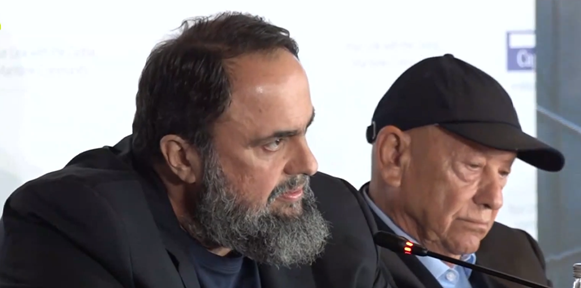
Posidonia 2024 runs until Friday. Organizers expect 40,000 people will participate as exhibitors, officials or visitors, as an unprecedented 2,030 companies are taking part from 82 countries.
Greek Prime Minister Kyriakos Mitsotakis attended the opening ceremony of the Posidonia 2024 International Maritime Exhibition, where he was the keynote speaker.
The Prime Minister has pledged to continue his support for Greek shipowners “in every aspect of the shipping industry, from the green transition to the safety of ports and shipyards.”
In the presence of Prime Minister Kyriakos Mitsotakis, Greek and international ministers, European officials and presidents of all major international shipping organisations, Posidonia 2024 was officially inaugurated during a ceremony held at the main conference hall of the Athens Metropolitan Expo.
Addressing representatives of Greek and international media as well as more than 800 senior leaders from the global maritime community who attended the opening ceremony, the Greek Prime Minister said: “There is no doubt that the field that you lead is facing changes that will determine the future or maritime transport. I want you to know that I will stand by your side in every battle that the Greek shipping industry will fight in order to enhance this value chain, which is centered on our country: from the green transition to safe ports and from the rejuvenation of Greek shipyards to the infusion of our workforce with the skills that developments impel.”
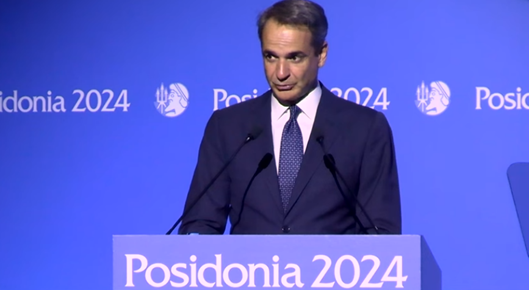
Photo: Greek Prime Minister Kyriakos Mitsotakis
And he added: “At a time when Europe is seeking to define the concept of strategic autonomy, the time has come for it to understand that shipping, European shipping, Greek shipping which constitutes the most significant force within European shipping, will play a crucial role in this strategic autonomy.”
On her part, Ms Melina Travlos, President of the Union of Greek Shipowners said: “Shipping is the backbone of humanity. It guarantees the survival, the subsistence, and the prosperity of the global community under any circumstances. A reality that has been so for millennia, but without true recognition of its profoundness and significance.”
She added: “Posidonia fosters the dialogue and the exchange of views, it generates business opportunities, and presents innovations and proposals that respond to the current situation and the demands of the global shipping community.”

